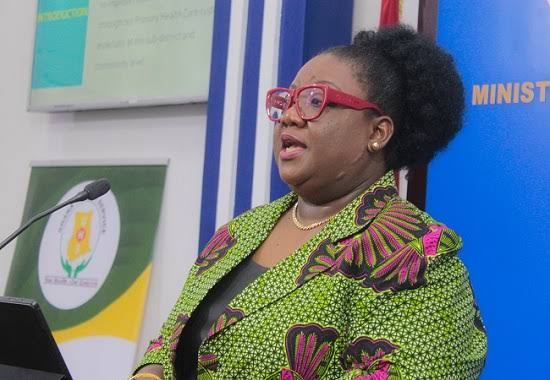The Ghana Health Service (GHS) is set to unveil a novel approach to healthcare delivery in the nation, as announced by Dr. Alberta Biritwum Nyarko, the Director in charge of Policy, Planning, Monitoring, and Evaluation at GHS.
Named “Networks of Practice” (NoP), this innovative approach aims to enhance healthcare service provision through the existing primary healthcare system, particularly at the sub-district and community levels.
As a part of this initiative, all Community-based Health Planning Systems (CHPS) compounds will be elevated to health centers, equipped with essential resources and staff to ensure their effective functioning.
Dr. Nyarko revealed this during a media briefing organized by the Ministry of Information in Accra.
She explained that the NoP model would establish a network of healthcare providers, both public and private, interconnected through administrative and clinical management. This network aims to enhance client services, reduce preventable deaths, and facilitate swift and appropriate responses to clinical and public health emergencies.
“We at the GHS have measures in place to combat the issue of unnecessary crowds, overworked doctors and nurses, long distances client cover, cost incurred and time wasted to access quality health services at the district health center,” she explained.
Dr. Nyarko outlined that these measures would furnish sub-district hospitals, communities, and schools with necessary equipment and qualified personnel. This step would improve referrals and gather feedback to assess the effectiveness of services rendered by various health centers.
“Our collaborative efforts with private and public health centers will fortify healthcare services in districts and sub-districts through a hub. This will provide easy access to medical care for all individuals in the country and alleviate the struggles clients previously encountered in accessing medical care,” she emphasized.
In a related context, Dr. Keziah Malm, the Programs Manager of the National Malaria Elimination Programme, noted that amidst efforts to improve healthcare networks and service quality, the program will maintain initiatives to combat malaria. She stressed the importance of elevating the standards, considering malaria’s significant impact on disease burdens.
Dr. Malm highlighted that the National Malaria Elimination Programme’s mandate is to lead all elimination endeavors in the country and coordinate activities among various agencies and partners.




